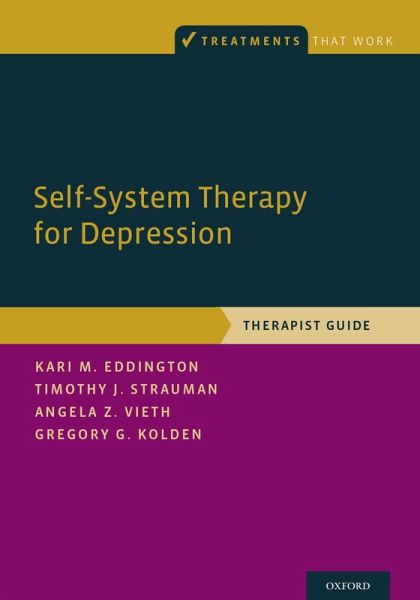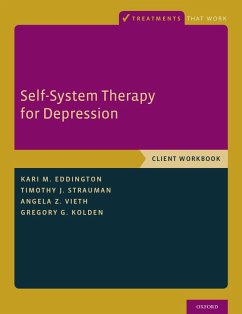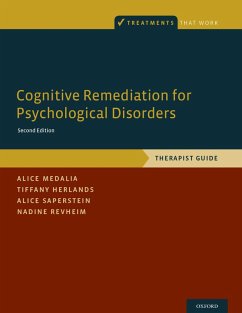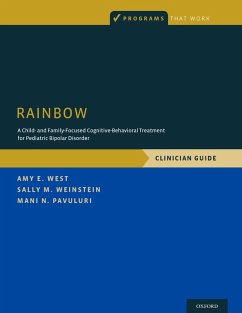
Self-System Therapy for Depression (eBook, PDF)
Therapist Guide
Versandkostenfrei!
Sofort per Download lieferbar
28,95 €
inkl. MwSt.
Weitere Ausgaben:

PAYBACK Punkte
14 °P sammeln!
Depression is one of the most common forms of psychological distress and can have devastating consequences for individuals and their loved ones. Decades of research have shown that there are many possible causes of depression, and one of those causes involves problems with self-regulation. Self-regulation involves setting and pursuing important personal goals - put simply, the process of trying to be the kind of person you want to be. Self-System Therapy for Depression: Therapist Guide provides a thorough description of Self-System Therapy (SST)-a motivational approach to treating depression t...
Depression is one of the most common forms of psychological distress and can have devastating consequences for individuals and their loved ones. Decades of research have shown that there are many possible causes of depression, and one of those causes involves problems with self-regulation. Self-regulation involves setting and pursuing important personal goals - put simply, the process of trying to be the kind of person you want to be. Self-System Therapy for Depression: Therapist Guide provides a thorough description of Self-System Therapy (SST)-a motivational approach to treating depression that helps decrease feelings of disappointment and failure and increase feelings of pride and accomplishment, by improving the process of self-regulation. Clinical studies have shown that SST is effective in reducing depression and anxiety. The treatment program is structured within a 16-session plan, and strategies and techniques for each phase of treatment are presented in detail, along with case vignettes and examples. The core strategies of SST focus on identifying appropriate and reasonable personal goals and standards (including coping with perfectionistic standards), evaluating and improving the effectiveness of goal pursuit strategies, and adjusting goals in order to improve opportunities for positive emotions. The accompanying Client Workbook explains the basics of self-regulation in simple terms and provides worksheets to help illustrate and implement these strategies.
Dieser Download kann aus rechtlichen Gründen nur mit Rechnungsadresse in A, B, BG, CY, CZ, D, DK, EW, E, FIN, F, GR, HR, H, IRL, I, LT, L, LR, M, NL, PL, P, R, S, SLO, SK ausgeliefert werden.













